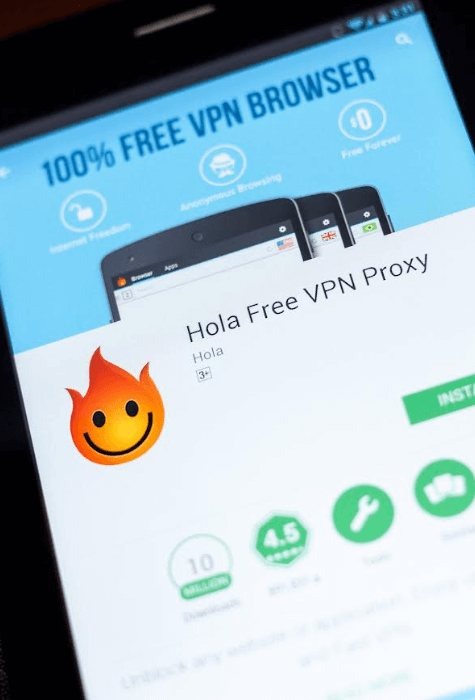Hola VPN is a free, peer-to-peer VPN service that became very popular because of its special way of bypassing geographical limits. Unlike the regular VPN providers, Hola does not depend on dedicated servers but uses its users’ devices to build up its network. That helps it stay free but raises a few eyebrows regarding data privacy and security. Here is everything potential users need to know about the features, strengths, and drawbacks of Hola VPN.
Key Features of Hola VPN
As mentioned, Hola VPN is based on a peer-to-peer network, which does not use secure and dedicated servers like typical VPNs. That involves sharing one’s internet resources with others when not in use and allows Hola to provide VPN services for free. Because Hola utilizes user devices as parts of its network, it can circumvent geographic restrictions without charging a subscription fee. This is what makes Hola VPN so unique and attractive for budget-conscious individuals.
Hola VPN supports all significant platforms, from Windows and macOS to iOS and Android; it also exists as a browser extension. It is intended to unlock geo-restricted content and access some websites and online streaming services that may not otherwise be accessible. At the same time, Hola doesn’t support standard encryption; hence, users’ data isn’t protected while browsing. This may make personal data vulnerable, so most users who are attentive to privacy and security will be uneasy about this.
Read also Why Ethereum is More Than Just a Cryptocurrency for Traders
Pros of Using Hola VPN
Of all the benefits Hola VPN promotes, perhaps the most touted is its community-powered architecture. In such a setup, users worldwide can browse without connecting to costly, centralized servers. This configuration enables faster browsing, compared with some traditional VPNs, although in many cases, this depends on how close one can connect to a local node.
Another advantage is its simplicity: the Hola VPN has a rather minimalistic interface and quick setup, which would be okay for non-technical users. Hola is simpler to use than some VPNs, which need a lot of setup. The cross-device compatibility also supports flexibility because users can install it on multiple operating systems and browsers easily.
Cons of Using Hola VPN
But what that means with Hola VPN’s peer-to-peer model is there are some potential bandwidth issues to deal with, considering the resources of devices on the network are shared in this setup. This may affect device performance when users take advantage of your connection as an exit node and slow browsing speeds down. Secondly, users can experience inconsistent speeds at any time without dedicated servers due to network demand.
Hola VPN’s data collection policy also raises a number of privacy red flags because it can keep logs of user activities for operational uses. For users who enforce anonymity, this would likely be a disadvantage since this does not fully meet the standards of zero logging common in the VPN industry. Lastly, device sharing poses some risks to security in that other users on shared connections could compromise your IP address and make it difficult in terms of accountability and trust.
Is Hola VPN Right for You?
Hola VPN is ideal for those users who want to access geo-restricted content without being primarily concerned about secure browsing. It is one of the easiest and most affordable ways to stream and browse casually. It is not ideal for users who value data privacy since Hola doesn’t encrypt data and usually logs information.







